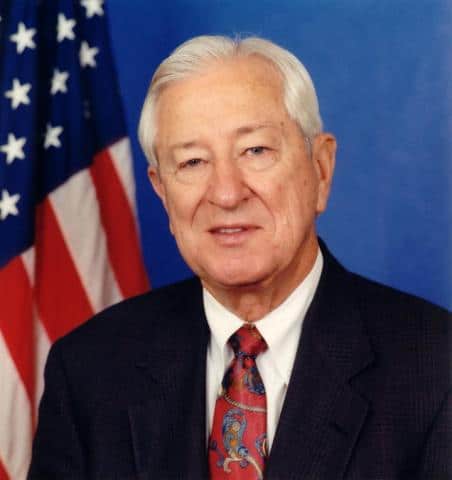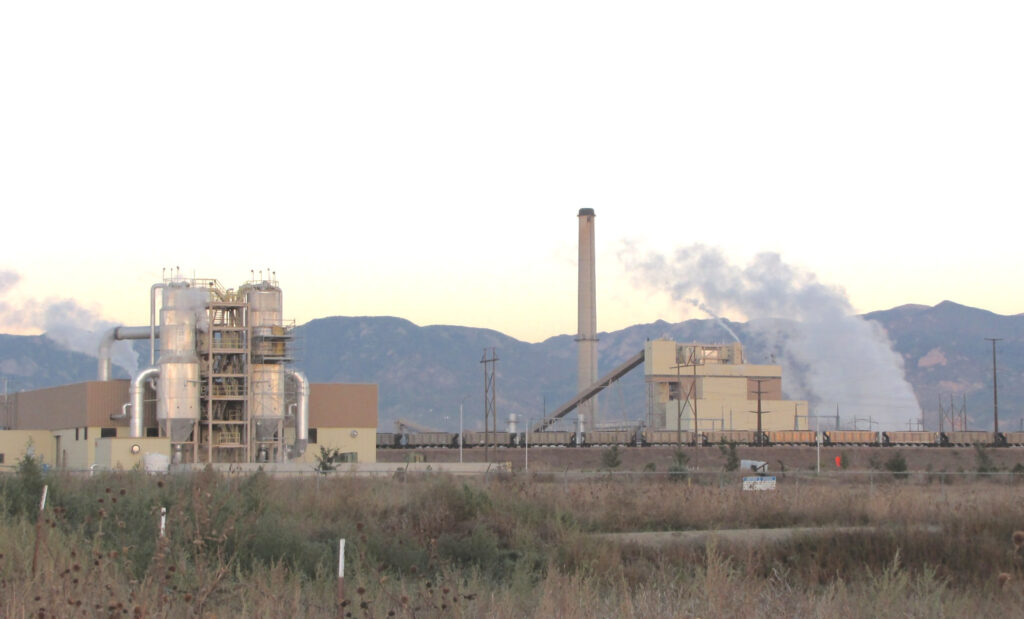Rep. Ralph Hall, the Republican Chair of the House Committee on Science, represents Texas’s fourth congressional district, which is located in the far northeast part of the state bordering on Oklahoma and Arkansas. A number of its counties—Lamar, Fannin, Red River, Grayson, and Cass—are currently included in federal disaster designations because they’re suffering from serious drought conditions. And according to the National Weather Service, droughts are expected to either develop, persist, or worsen throughout Texas over the course of this year.
So like any good legislator would, Hall has tried to help his district cope with these difficult challenges. For instance, he recently signed a letter to Agriculture Secretary Tom Vilsack calling for more support to counties in his region as they seek to cope with drought.
Here’s the thing, though: Scientific assessments tell us that under human induced climate change, the risk of drought conditions like these, to Texas, will only increase. According to the federal government’s very own Global Climate Change Impacts in the United States report, the Great Plains region is one in which “rising temperatures, faster evaporation rates, and more sustained drought brought on by climate change will add more stress to overtaxed water resources.” Some of Texas (and Hall’s district) also lies in the report’s Southeast region, where “projected increases in air and water temperatures will cause heat-related stresses for people, plants and animals,” and “decreased water availability is very likely to affect the region’s economy as well as its natural systems.”
It’s not just federal scientists predicting this, incidentally–it’s also scientists from Texas. State climatologist John W. Nielsen-Gammon, for instance, has warned that “in Texas, temperatures are likely to rise, and future precipitation trends are difficult to call, so it is likely that drought frequency and severity will increase in Texas. If temperatures rise and precipitation decreases, as projected by climate models, Texas would begin seeing droughts in the middle of the 21st century that are as bad or worse as those in the beginning or middle of the 20th century.”
By all rights, then, Ralph Hall ought to be pretty concerned about climate change—and especially its regional impacts within the United States. But it doesn’t seem like he is. On his website, Hall includes the standard debunked claims about “Climategate”: “There is growing concern and evidence that scientific data, from which global warming theories emerged, has been manipulated, enhanced or deleted.” He has also stated that “reasonable people have serious questions about our knowledge of the state of the science, what the evidence is, and what constitutes a proportional response. Sorting scientific fact from rhetoric is essential, and we have a long way to go on this topic.” (No we don’t.)
That’s not all. Recently, amid the flurry of budgetary cuts introduced by House Republicans, Hall sponsored an amendment (which passed 233 to 187) to block the National Oceanic and Atmospheric Administration’s attempt to create a national Climate Service—an initiative that would greatly aid states and districts like Hall’s in preparing for the serious impacts of climate change. The Climate Service is designed to ”provide a one stop shop for users across the nation in much the same way NOAA’s National Weather Service has been providing weather information and services for 140 years.” To this end, among other tasks the service will create “products and decision support tools that are relevant and useful to equip policy makers, business leaders, local governments and other decision-makers to plan for a changing climate.”
So here is the strange summation: Ralph Hall represents a state and district suffering from (and highly vulnerable to) drought; global warming is expected to worsen drought risks for Texas and Hall’s district; Hall questions the science of global warming; Hall leads his party in an effort to block funding for a climate service that would help his district, and many other regions, assess their vulnerability and prepare for a changing climate.
Maybe Hall has a way to explain this. But it’s difficult for me to imagine what it is.
Subscribe to our newsletter
Stay up to date with DeSmog news and alerts






